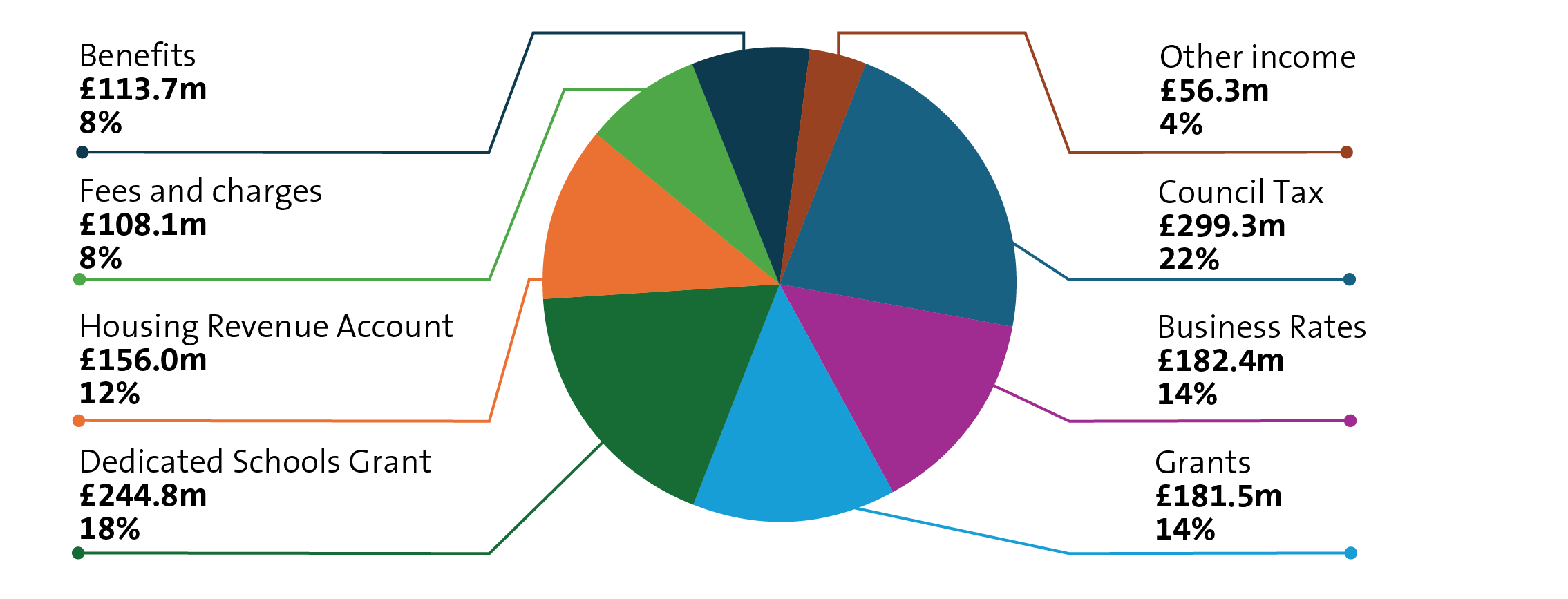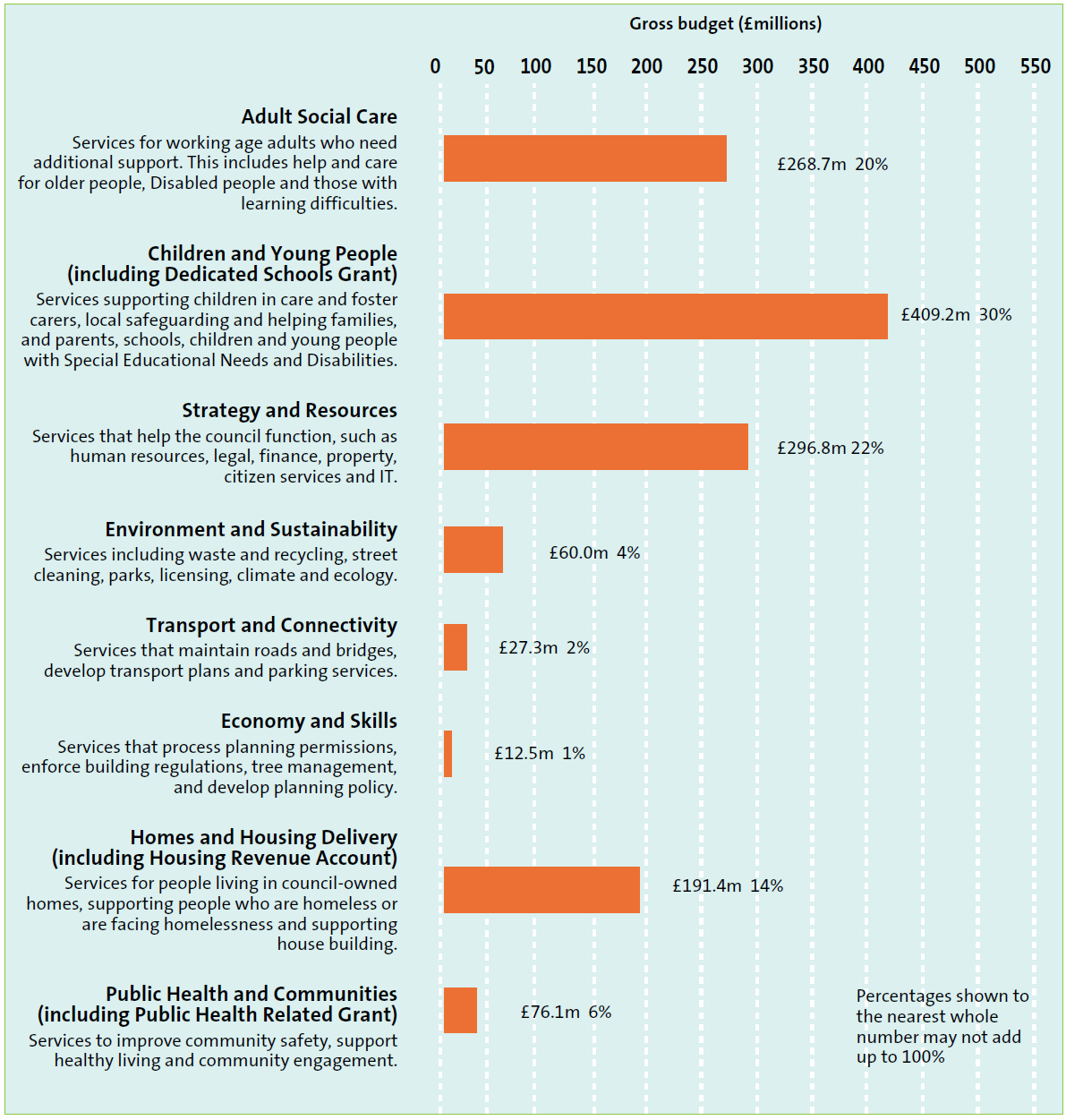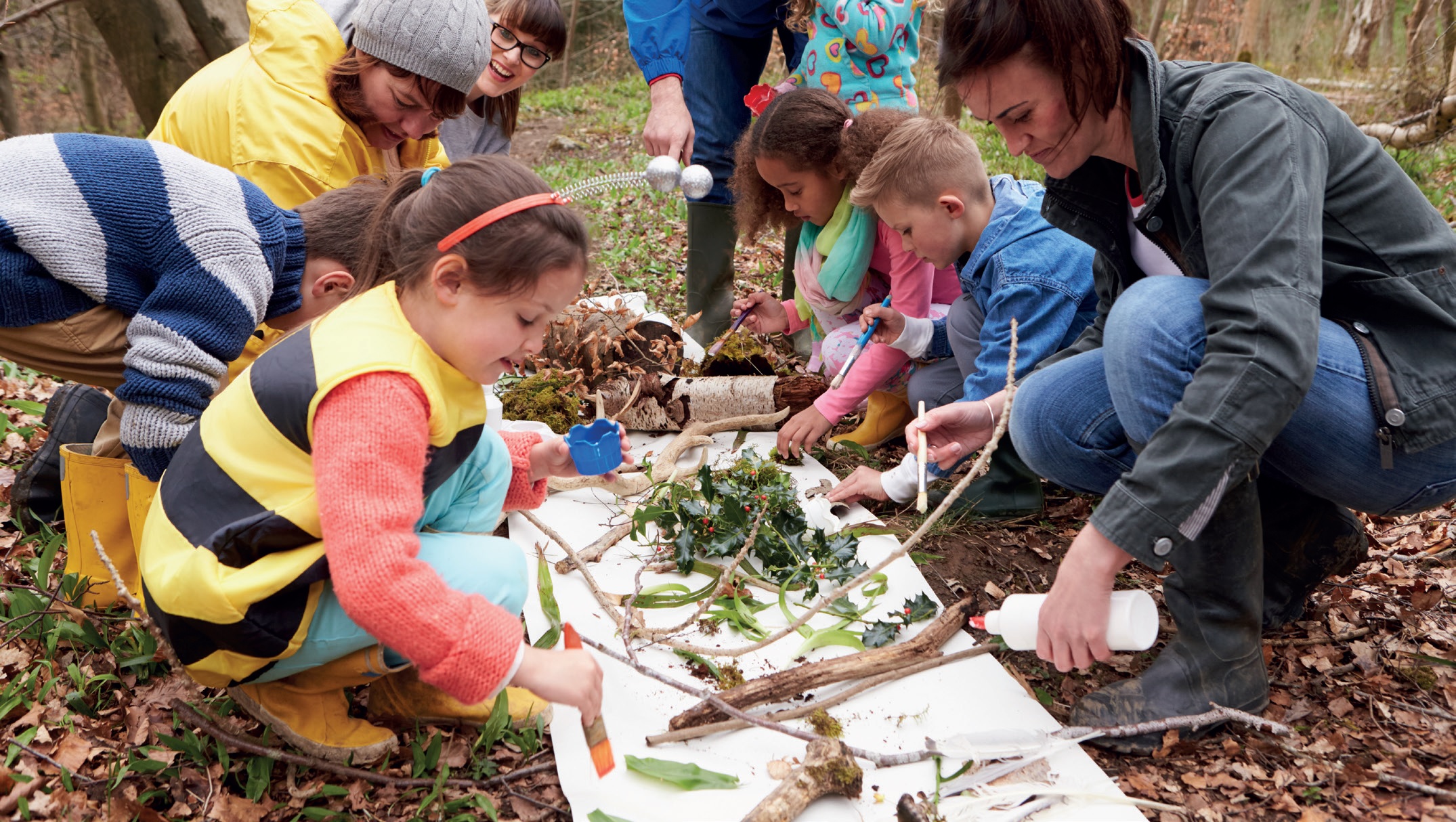Budget 2026 to 2027 consultation
Introduction
Every year, the council must agree a legal and balanced budget that sets out how much we intend to spend in the coming year and how we propose to raise the money needed to pay for these spending plans.
The past 12 months has been a period of stabilising our finances to make possible the significant investment our city and our services need to continue to meet the needs of all residents. The balanced budget we set in February 2025 has created opportunities to invest in critical areas across our city, focusing on the priorities we set out in our Corporate Strategy. Despite a tough economic backdrop, there is much we should recognise and celebrate from the last 12 months.
Find out more about our focus on investment over the last 12 months
We are now at the point where we are laying out plans for next year’s budget and revising our forecasts of what we believe our finances will look like over the next five years.
This year, Bristol continues to face funding challenges, with a budget gap projected at £20.8 million for the 2026 to 2027 financial year. Bristol’s growing and aging population means more people need our help and the costs of providing services has risen again due to high inflation and interest rates. At the same time, funding for council services from the UK government has not kept pace with the rising costs of goods and services for over a decade. This is the difficult picture seen in councils across the country.
In this consultation, we explain how our budget is funded, where the money is spent, and the pressures on the budget. We ask for your views on the level of Council Tax and Social Care Precept for the coming year April 2026 to March 2027. These are 2 of the ways we can fund the services the council provides.
- Council Tax pays for local services like recycling and waste collections, running our parks and libraries, and maintaining our roads. Council Tax is charged to each household, based on the value of the property. There are 8 Council Tax bands from A, the lowest charge, to H, the highest. Council Tax bills also include separate amounts for The Police and Fire services, so we refer to the part that pays for council services as ‘core’ Council Tax.
- Social Care Precept is an additional charge towards the costs of social care, for example to support older adults living independently in their homes.
The proposals in this consultation for Council Tax and Social Care Precept will not be enough on their own to be able to set a balanced budget. We also ask you about other ways we propose to raise income and reduce costs - by improving efficiency wherever possible, or in some cases reducing or stopping some services.
We know that changes to Council Tax and Social Care Precept levels will be difficult for some of our residents, and we are committed to continuing to support those in financial hardship through the Council Tax Reduction Scheme. Looking ahead at the next 5 years, we intend to maintain a focus on investment, identifying projects and actions where we can spend now to deliver long-term benefits to people and communities - and we want to involve residents in helping reach these hard choices.
Please complete the survey to help us understand your opinions on our budget proposals and what they would mean for you, so that we can take your views and needs into account.
Closed for feedback
Ended: 26 November 2025
What happens next
All responses to this consultation will be analysed and the feedback will help us develop final proposals for the level of Council Tax and Social Care Precept and proposals to increase income or reduce costs.
The council’s Strategy and Resources Policy Committee will consider these proposals on 2 Febuary 2026 and agree a recommended budget for all councillors to consider.
The final decisions about the 2026 to 2027 budget will be taken by Full Council at its budget setting meeting on 12 February 2026. Both the Strategy and Resources Policy Committee and Full Council will take responses to the consultation into consideration when making their decisions.
Further information
Our budget: how it works
Overview
Every year, we agree on a budget for the following year which shows how much money we will be able to spend on services we provide.
The council’s total planned expenditure to deliver services this year, April 2025 to March 2026, is £1.34 billion. This is known as the ‘gross expenditure budget’. It includes all costs to deliver council services, before any income or funding is taken into account.
The overall gross expenditure budget of £1.34 billion is made up of four main budget areas:
- The Revenue Budget, also known as the ‘General Fund’, pays for day-to-day spending on a wide range of essential services, that most people use. These include recycling and waste collections, running our parks and libraries, and maintaining our roads. We also provide services that are less visible, such as social care services, which make up by far the largest share of the council’s Revenue Budget, providing support to those who need additional help and the most vulnerable in our city. The Revenue Budget in 2025 to 2026 is £898.0 million. This is 67% of the £1.34 billion overall budget.
- The Housing Revenue Account is mostly made up of the rent we collect from council tenants. This money is used to plan and provide services for people living in council housing, including repairs and improvements, and for a programme to build new council homes. The Housing Revenue Account in 2025 to 2026 is £156.0 million. This is 12% of the £1.34 billion overall budget.
- The Dedicated Schools Grant is money received from the UK government each year to pay for schools and education services for children and young people in Bristol. The grant can only be used for these things. The Dedicated Schools Grant in 2025 to 2026 is £244.8 million. This is 18% of the £1.34 billion overall budget.
- The Public Health Grant is a yearly grant from the UK government, which can only be used to promote good mental and physical health in the city and pay for services that help people stay healthy. This is supplemented by other public health related funding. The Public Health Grant in 2025 to 2026 is £43.3 million. This is 3% of the £1.34 billion overall budget.
 Figure 1: Four budget areas that make up the total spending to deliver services in 2025 to 2026
Figure 1: Four budget areas that make up the total spending to deliver services in 2025 to 2026
This consultation asks you about some of the ways we can raise money for the Revenue Budget. The other 3 budgets are funded in different ways and the council can only spend the money in those budgets on very specific things. Each year, where required, we consult on these other budgets separately before we set the council’s budget in February.
How the budget is funded
The main sources of income to fund the council’s budget of £1.34 billion are Council Tax, Business Rates and government grants. The sources of income and the percentage each contributes to our 2025 to 2026 budget are listed below and shown in Figure 2.
- Council Tax: £299.3 million, 22%
- Business Rates: £182.4 million, 14%
- Grants: £181.5 million, 14%
- Dedicated Schools Grant: £244.8 million, 18%
- Housing Revenue Account: £156.0 million, 12%
- Fees and charges: £108.1 million, 8%
- Benefits: £113.7 million, 8%
- Other income: £56.3 million, 4%

Figure 2: Sources of income for the gross expenditure budget in 2025 to 2026
Where the money goes
During the current financial year, 2025 to 2026, the council has budgeted £1.34 billion total spending on providing a range of services for the people of Bristol.
The amount we are spending on services this year, 2025 to 2026, is listed below and shown in Figure 3. The spending is shown for each of the council’s 8 policy committee areas as millions of pounds and as a percentage of the total £1.34 billion budget.
- Adult Social care: £268.7 million, 20%
- Children and Young People, including Dedicated Schools Grant: £409.2 million, 30%
- Strategy and Resources: £296.8 million, 22%
- Environment and Sustainability: £60.0 million, 4%
- Transport and Connectivity: £27.3 million, 2%
- Economy and Skills: £12.5 million, 1%
- Homes and Housing Delivery, including Housing Revenue Account: 191.4 million, 14%
- Public Health and Communities, including Public Health Related Grant: £76.1 million, 6%

Figure 3: Council spend on services in 2025 to 2026
The budget challenge
Falling income – rising costs
Over the past 14 years, the amount of money available to the council has not kept pace with the rising costs of goods and services. This is a situation that is being seen across the country and has led to councils facing significant financial pressures.
The main sources of income for any council continue to be from Council Tax, Business Rates and government grants. Though the amount Bristol can expect to receive in government funding for council services next year and beyond remains uncertain, the UK government expects councils to implement an annual rise of 5% in overall Council Tax levels, made up of 3% increase in core Council Tax plus a 2% Social Care Precept. The UK’s economic outlook remains challenging as the economy continues to be affected by global events, as well as the ongoing national cost of living pressures.
During the past year, demand on our services has continued to increase significantly as the city’s population has grown. We continue to see increases in cost and complexity of care and support required for children and adults. Limited market provision of services from private, voluntary or other public sector organisations drives prices for care upwards.
Like all other organisations and households in Bristol, we also face the continuing impact from the levels of high inflation in recent years, alongside pay pressures. All of which are contributing to higher costs of delivering many of our core services. Prices remain high for goods, services and utilities, meaning that, in many cases, the cost of delivering services next year will be significantly more expensive than it was in recent years.

How costs have increased
Adult Social Care
In the current year, the expenditure budget for adult social care is £268.7 million. This is all revenue budget. This is forecast to increase due to the following pressures that have been building for many years:
- demographic pressures with increased numbers of both older people needing social care, and increased demand for care from working age adults
- increases in the National Living Wage costs
- rising costs of care to support people with increasingly complex care needs and the associated workforce challenges across the sector
- inflationary pressures

Children’s Social Care and Education Services
In the current year, the expenditure budget for children’s social care and education services is £164.4 million. This is all revenue budget and excludes the Dedicated Schools Grant of £244.8 million which is a separate ring-fenced budget.
The demand for services that must legally be provided continues to rise. This is putting pressure on social care workers and on budgets to home children and young people. We are seeing this in Bristol and across the country.
Children who go into care often face challenges that can reduce their chances of having a good life. To avoid this, the Families First transformation programme is changing how things work so support is given to families earlier, to help stop problems getting worse. This will reduce the need for formal interventions, where services need to step in and place children into care.
The Medium Term Financial Strategy for Education Services, which includes savings and additional funding for Home to School Travel, is currently forecast to meet demand.

Housing Support
In the current year, the revenue expenditure budget for housing is £35.4 million, excluding the Housing Revenue Account of £156.0 million which is a separate ring-fenced budget. This is forecast to increase due to pressures within the temporary accommodation sector for people experiencing homelessness in the city. These pressures include the high cost of living, unaffordability of the private rented sector and reduced supply of social and affordable housing.
Help for low-income households to meet their Council Tax bills
Council Tax Reduction Scheme
Since 2013, councils have designed their own Council Tax Reduction (CTR) schemes. Bristol has been among only a small number of authorities to retain a fully funded CTR scheme for those that need financial support.
Other support funds
During the current financial year, 2025 to 2026, we’ve supported low-income households and those in need through a number of further support funds which include the local crisis and prevention fund (LCPF) and the Household Support Fund (HSF).
Key dates
- Start date: 15 October 2025
- End date: 26 November 2025
